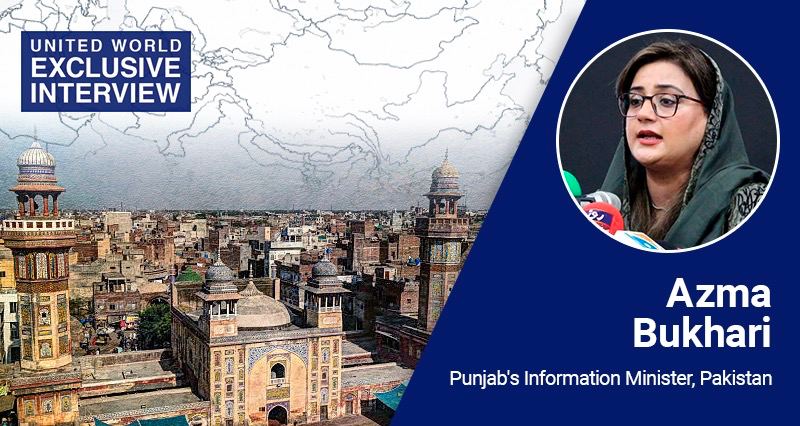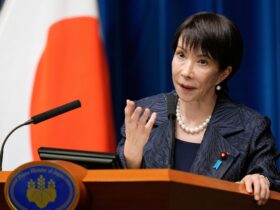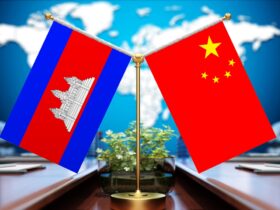By Dure Akram, Lahore, Pakistan
Going by assumptions, many sitting outside Pakistan conclude it is “divided, disorganized, economically backward, corrupt, violent, unjust, often savagely oppressive towards the poor and women, and home to extremely dangerous forms of extremism and terrorism.” However convincing as it may seem, the international narrative does not consider the resilience of both nation and state to bust these cliches and live up to the once-envisioned ideals of a modern nation state.
Heading the country’s largest province by population (most strategic and its heartland, in essence) in a revolutionary role as a female information minister in a cabinet led by first-ever female chief minister, Azma Bukhari has a lot to say and a lot to achieve in an unprecedented tough terrain. Known for speaking her mind without any fear of reprisal, Ms. Bukhari enjoys an incredulous reputation in Pakistani politics in not only owning the courage to call a spade a spade but even being frank in admitting if her own party needs to go back to drawing board over any policy issues. Ms Bukhari comes from Pakistan Muslim League (Nawaz), the face of the coalition government formed after the historic elections on February 8, 2024, in the wake of a long-drawn-out overture from parliamentary politics in a country that takes great pride in its democratic roots.
United World International sat down with Azma in one of her designated offices in Alhamra, Lahore, a befitting tribute to the city’s cultural legacy.
As a longstanding politician who has seen both sides of the table, tell us how hard you found governance as opposed to electioneering?
It could not be more different. Governance is incredibly hard when compared to opposition. When sitting on the opposition benches, you do not have the burden, you do not have the pressure to deliver. The common man’s razor-sharp focus is not on you. You alone have the capacity, the potential to deliver medicines to the masses, control inflation, carve out some relief for them. It is a great challenge. Thankfully, my chief minister is working day in, day out to compete with her own self. The long list of goals she has set for herself, she has been working on them in the last month or so. This clarity, this speed, this new form of governance was unknown to us in Pakistan. She is there in her office five minutes before she is due. She comes in, attends meetings fully aware of all the nitty-gritties, gives assignments and then remembers to ask for follow-up. Pakistan, especially Punjab, had forgotten such a revolutionary style of governance, thanks to our predecessors in the Imran Khan era.
Coming to my own assignment, it is extremely challenging to be a befitting spokesperson to someone who is challenging the realms of time. I find it hard to keep up with her commitments, in telling people what is being done on the ground. Covering the entirety of her meetings in front of the media, especially when it does not have the space to fit us in, is a challenge.
We keep saying how the media does not have sufficient space for governance as opposed to political controversies. Do you wish to work on this as your legacy as Punjab’s information minister?
I want to work but I cannot do this by myself. The media sources would have to consider why they want to emphasize the jail diaries of one individual over Punjab government’s plans to ensure milk to children in government schools, an extremely comprehensive education policy. It pains me to see how our mainstream media has fallen prey to sensationalism. My chief minister has introduced a lot of initiatives, but they are still not delivered.
Heading a women-led team in a world of men
Heading a women-led team in a world of men must come with its own set of constraints. Are you facing any backlash?
Of course, men are not ready to see this. For now, it’s all witty one-liners, muffled sighs and Punjabi slangs in a light-hearted manner. But I can sense the heat, the toxicity. Because our chief minister is a woman, they are forced to make do and show restraint. It is, indeed, a challenge for all of us to deliver because the spotlight is on us. But my message is: do not be terrified of us in charge. Keep up just like we’ve kept up with your leadership for ages.
It is often mentioned that the financial circumstances could not get any more dire. Pakistan is standing at the edge of default. How is it possible for the incumbent to deliver to the masses and justify its 100-days performance?
I truly hope that my party will stay true to its manifesto. Speaking about Punjab, our emphasis is on laying down the framework so that our donor agencies, our partners, our international community feel comfortable in stepping in. Locally, we wish to pursue public-private partnerships. There’s not even a single policy introduced by CM Nawaz which cannot be implemented. The process has already begun, and we are very, very comfortable.
Speaking about my party, it goes to our credit for previously coming out of the default position. The nefarious designs to turn Pakistan into Sri Lanka only failed because of our Prime Minister’s ability to have a grip on our affairs. Today, may it be the World Bank or IMF, all are singing praises about our resilience, our direction and sincerely hope for stability to return. Dollar is under control and the stock exchange is crossing by leaps and bounds.
Seeking out the IMF for a roll-out program
All these show that Pakistan is on its way back to buoyancy. BUT we would still have to seek the IMF for a roll-out program, which would not be easy at all. No qualms about that. As a direct consequence of the rising global petroleum prices, we were forced to raise petrol, but this was not an easy decision. We believe that by the time we pass this extraordinarily pressing first years, things will begin to settle down. International indicators already proclaim that inflation is about to go down. Let’s hope for the best.
Although finding and establishing international collaborations goes to the ambit of the federal government, how would CM Maryam, sitting in the heartland pursue these linkages with donor agencies and partners?
It is not just the federal government that’s responsible for these collaborations. Every major donor agency works with the provinces. The bulk of such transformative collaborations began after 2013 when the then chief minister of Punjab Shahbaz Sharif and prime minister Nawaz Sharif won the confidence of the international community. May it be the World Bank or Asian Development Bank. They worked a lot in Punjab. Many of their projects are still ongoing.
Tragically, these donor agencies relayed to us that projects that should have been completed months, if not years ago, still linger on, thanks to incompetence, lack of interest, bureaucratic delays and an overall neglect. Water sanitation programs and cleanliness programs continue but our chief minister has taken it upon herself to complete them now as soon as possible.
Shahbaz Sharif is known worldwide for his speed. The interim government also remained in the headlines for having an interest in infrastructure projects. How does your government plan to compete?
Making headlines is very easy in Pakistan. All you need is some political masala and you are good to go. The mandate of an elected government cannot be competed with that of the interim. Having sat in power for a long duration and enjoying the limelight, caretaker chief minister of Punjab Mohsin Naqvi is believed to have played an instrumental role. But reality persists. Governance goes beyond cutting ribbons and attending inauguration programs. Overseeing the pace of all departments, keeping them in check and ensuring progress is delivered goes to the credit of an elected government and my chief minister is ticking all the boxes.
Position on India
Let’s talk about India. Foreign Minister Ishaq Dar stirred a tempest a while ago with his mention of opening ties with India. Amid the Kashmiri backdrop and in full knowledge of the fact that Pakistani Punjab would benefit the most from any trading initiatives because of its proximity and shared linkages with Indian Punjab, what is your government’s position on opening ties with India? Is there any infrastructural framework to pursue?
The biggest impact of this trade would be on the prices of our vegetables, our edibles, which report a significant dip every time we open our doors. Prices of tomatoes, potatoes, chilies go down because it is incredibly easy to trade produce. We must admit that India has revolutionized its agriculture. Pakistan is trying its best to reform policies by introducing new modern technology to its farmers through Kissan Cards, relief to subsistence farmer and provision of fertilizers and pesticides.
However, this process can speed up if we have peace with India. Why can’t we live in peace with our neighbors especially because you can never change them? India is a reality. Same goes for Pakistan. Nevertheless, the original bone of contention, Kashmir, is also a reality. It can only be hoped that the international community would finally begin to realize the seriousness of the issue and pay attention to the plight of Kashmiris and their decades-old struggle for self-determination. The harrowing reality after August 3, 2019, can no longer be denied. Surprisingly, the world cannot see Kashmir, Gaza or the plight of any other Muslims. A single stabbing incident in some European country manages to remain in limelight for weeks on end but the fact that Muslims continue to be butchered does not warrant any reaction.
Gaza and Kashmir
Do you think that the PML(N) government and Islamabad would ever go beyond lip service in raising voice for the case of Gaza and Kashmir (as you mentioned)?
We have always played our due role. It was under PML(N) that Attal Bihari Vajapyee, former prime minister of India, had come to Lahore and acknowledge Pakistan. Peace talks had begun but then non-state actors interfere. Something like a terror bid at Pulwama happens and we are back to ground zero.
Pakistan has always tried its best to play its role as a state seriously interested in peace. However, the hyper-active, anti-Muslim policies of the current prime minister Narendra Modi cannot be denied. An ordinary Indian is just as excruciate by his measures. Having met with countless Indian on numerous trips, I can say, with a fair degree of certainty, that an Indian walking on the ground has a lot to share with someone in Pakistan. Sadly, decisions to pursue peace or jingoism are not taken by that Indian or Pakistani. I believe that India and Pakistan would have to agree on a minimum agenda. Live and let live!
Pakistan has always remained focused on its equation with India but last year alone is replete with evidence about our troubled western neighborhood. Strikes from Iran and continuing skirmishes with Afghanistan. How can Pakistan balance regional collaborations with its own security paradigm?
Tricky! Very tricky! As a politician, I see a solution to every problem. We need to find that minimum possible point of collaboration. Buying arms is no solution. Wars never solve anything. Talking about Kashmir again, if Pakistan and India resolve their territorial issues, no one can stop this region from becoming a superpower.
Imran Khan has pushed the Chinese out, now they’re returning
Pakistan, Islamabad and even Lahore (under the Sharif family) has enjoyed an iron-clad friendship with China. Are there any gamechanger collaborations on the agenda?
Yes, you’ll see the second phase of the revolutionary China Pakistan Corridor in the coming days. Regretfully, the Imran Khan government sabotaged the entire agenda, pushing the Chinese out. They are now all set to return. Not just China, we are in talks with the UAE for a long list of privatization collaborations. Saudi Arabia and Qatar are in the loop. Our sunny days are around the corner.
BRICS and Biden
You mentioned so many countries but did not talk about BRICS.
BRICS is a reality. But good things only happen if you send out a confident, reconciliatory message in the world. If countries see us as haughty, too-full-of-ourselves, no one would be willing to invest. Have we forgotten the debacle of backbiting about one ally in front of another? BRICS donor agencies are already working with us.
Recently, US President Joe Biden wrote a letter of support and encouragement to our prime minister, something that did not sit well with the opposition. As opposed to them, key superpowers not only attend our phone calls but even call to engage us themselves.
How would you categorize your government’s vision for Punjab in one mantra?
A one-liner for Punjab should be a Progressive Punjab. A new model of governance. A competent leadership. Commitment to People.
Any parting message for an ordinary Lahore, ordinary Punjabi and an ordinary Pakistani?
Be fair and loyal to your city, your province and your country. Things should go beyond us repeating the same mistakes again and again. No government can thrive without citizen support.
Be true to our responsibilities as a citizen. Be it cleaning your localities, adhering to rules and regulations or most importantly, paying taxes, we cannot continue down the path of evil genius.

















Leave a Reply